At Soluxe, we have taken great lengths to source the best proteins around the world and have finally found the best-in-class soy protein isolate. Soy protein isolate is the core of many meal replacement shakes and drinks for many reasons. And we love it for more than its silky smooth texture.
We want you to be a fan of soy as we are. So, we’re going to do a deep dive into soy so you can understand why we chose to bring the best soy protein isolate for you!
What is soy?

Soy is an excellent source of high-quality protein.
Soybean is a legume, it is a staple food in many countries, especially in Asia, as an excellent source of high-quality protein. Compared to other legumes (pea, peanut, lentils), soybean has the most complete amino acid profile and makes it a complete protein source.
After months of R&D, we believe in harnessing the power of soy protein isolate. So, what’s that? Soy protein isolate is purified from whole soybeans. Soy isolate has 90-95% protein, while other high protein foods vary widely in their protein quality and content.
One of the key reasons that we are convinced is because soy is a complete source of protein and is the closest in protein quality to cow's milk. This means that it contains ALL of the essential amino acids that are necessary for healthy, growing, and functioning bodies.
Amino acids
One of the most important factors to look at when evaluating a protein powder product is the amino acid profile. There are 22 types of amino acids used by the human body; nine of these cannot be synthesized by the body and must be obtained from dietary sources. Both soy and whey protein are “complete” proteins, meaning that they contain these nine essential amino acids. However, they differ slightly in their relative concentrations of the essential amino acids. For example, whey protein tends to be higher in leucine, isoleucine, methionine, and lysine (Misner, 2015). In contrast, soy protein is higher than whey protein in arginine, phenylalanine, and tryptophan.
Because lysine has been associated with muscle growth and methionine with accelerated fat loss, many bodybuilders choose whey protein for its superior profile of these amino acids (Robson, 2016). However, both soy and whey protein contain adequate amounts of essential and nonessential amino acids to support general health.

Meat, eggs, and nuts are great sources of protein, but the amount of protein in them can vary. Animal and milk protein sources often come with unhealthy levels and types of fat, such as saturated fat and cholesterol.
It’s important to get a diversity of high-quality protein sources.
Plant-based proteins, especially soy protein, are essential in order to get high-quality clean protein, without a lot of bad fat. Keeping variety in your protein consumption, and including soy protein, ensures you’re getting enough of what you need while limiting the stuff you should avoid.
Why non-GMO matters to Soluxe
Here’s why.
94% of soybeans grown around the world are Genetically Modified Organism (GMO) for several reasons. They are designed to grow fast, cheap and at scale for the animal feed market. Furthermore, these modified cell soybeans are insect-resistant, so that farmers can yield maximum harvest at the cheapest possible way.
Not all soy beans are created equal.
Soluxe Soy protein isolate also has a very high bioavailability, which is why we took great lengths in sourcing the best available non-GMO soy in the market. Bioavailability is the level at which it is absorbed by our digestive system. The soy isolate used in Soluxe has a Protein Digestibility Corrected Amino Acid Score (PDCAAS) of 1, matching that of animal milk protein.
In addition to being the only plant-based protein that scored this well, we also chose soy isolate because it has a smooth texture and taste. It creates the optimal flavor profile and health benefits.

Sustainability.
Swapping protein intake from meat to soy can help save precious sources from the environment. Let’s put this into perspective:
To produce 1kg of beef, 15,131 litres of water is used.
To produce 1kg of chicken, 4,325 litres of water is used.
But, to produce 1kg of soybeans, it only takes around 1,815 litres of water.
Better for your health over time
According to the American Heart Association, too much cholesterol can pose a problem to your overall health. Cholesterol comes from two sources—your natural liver function and foods derived from animals. Meat, poultry, and full-fat dairy products all contain cholesterol, and typically, those same foods are high in saturated and trans fats.

If you are still taking meat, keeping a balanced diet of meat and soy protein can help you control cholesterol levels long-term.
References:
- Heart.org: What is Cholesterol?
- SpringerLink: How well do plant based alternatives fare nutritionally compared to cow's milk?
- Breastcancer.org: Soy (Nutrition and Breast Cancer Risk Reduction - Foods to Consider)
- PubMed: Male soy food intake was not associated with in vitro fertilization outcomes among couples attending a fertility center.
- Cancer.gov: Prostate Cancer, Nutrition and Dietary Supplements - Soy Foods
- NCBI NLM NIH: Soy food and isoflavone intake in relation to semen quality parameters among men from an infertility clinic.



